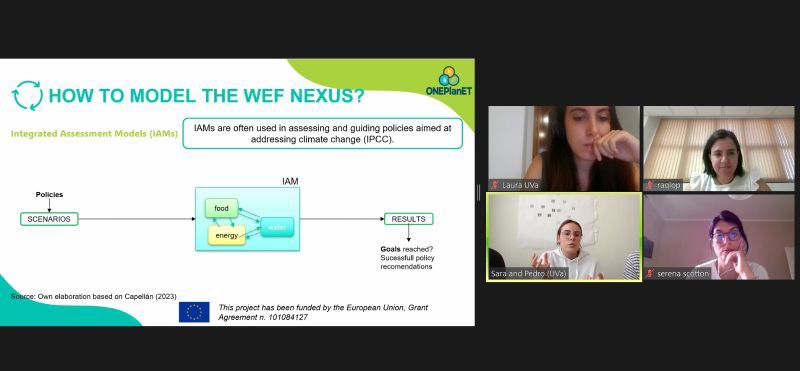At a recent webinar, the team shared insights into the project’s progress and innovative modeling approach to address Africa’s energy, water, and food (WEF) challenges. The focus is on creating a comprehensive toolkit that simulates resource scenarios to inform local policies, taking into account socio-economic and environmental conditions. Three African river basin case studies—Bani in Mali, Songwe in Malawi and Tanzania, and Inkomati in South Africa—are driving these efforts, emphasizing the importance of stakeholder engagement and co-design with local municipalities and communities.
During the webinar, researchers from the ONEPlanET consortium outlined the project’s methodology, including the use of system dynamics and integrated assessment models. These tools help to assess the complex interdependencies between water, energy, and food resources, providing valuable insights into potential policy outcomes. The modeling framework is adaptable with stakeholders adjusting variables based on local contexts, ensuring the relevance and accuracy of policy recommendations. Experts highlighted critical topics, such as water resource management, energy transformation, food production sustainability, and socio-economic dynamics that the project also covers. They discussed water availability models, energy demand and supply simulations, and the development of a food module that considers land use, water availability, agricultural inputs, and pollution—tailored to regions like the Songwe, Inkomati and Bani River Basins.
In this webinar, we had the opportunity to showcase the work from our sister project, RE-INTEGRATE Project, which aims to build sustainable energy strategies for the African Union by integrating knowledge and expertise with the European Union, focusing on climate-compatible energy solutions and resource management tailored to each country’s unique needs. You can learn more about their work here.
Looking ahead, the ONEPlanET team is expanding the model to include more detailed analyses and scenario-based policy recommendations for sustainable planning across different geographical scales. This work, alongside capacity-building initiatives and collaborative efforts, will play a crucial role in guiding Africa’s transition to a more sustainable and resilient future.

